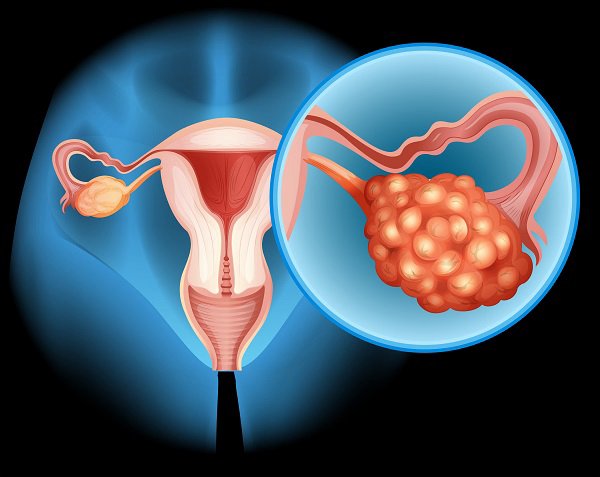The female reproductive system is a complex network of organs that plays a crucial role in a woman’s overall health, well-being, and fertility. From menstruation to pregnancy and menopause, the reproductive system goes through several phases throughout a woman’s life. Maintaining its health is essential for hormone balance, fertility, and preventing various reproductive disorders. In this article, we will explore the most effective strategies to maintain the health and activity of the female reproductive system, with insights from scientific sources.
Understanding the Female Reproductive System
The female reproductive system includes the ovaries, fallopian tubes, uterus, cervix, and vagina. It is responsible for producing eggs, facilitating fertilization, and nurturing a developing fetus during pregnancy. Maintaining the health of these organs ensures proper hormone production, menstrual regulation, and overall reproductive well-being.
1. Prioritize a Balanced, Nutrient-Rich Diet
A well-balanced diet is a cornerstone of reproductive health. Nutrients that support hormone balance, egg quality, and reproductive organ function are essential for maintaining the health of the female reproductive system. Here are key nutrients:
- Folic Acid: Critical for reproductive health and preventing birth defects. Found in leafy greens, beans, and fortified cereals.
- Iron: Supports healthy blood flow during menstruation and pregnancy. Found in red meat, spinach, and legumes.
- Omega-3 Fatty Acids: Known to reduce inflammation and support hormone regulation. Found in fatty fish such as salmon, flaxseeds, and walnuts.
- Calcium and Vitamin D: Important for bone health, particularly during pregnancy and menopause. Dairy products, fortified foods, and sun exposure are good sources.
- Antioxidants: Vitamins C and E help protect eggs from oxidative damage, improving reproductive function.
2. Maintain a Healthy Weight
Achieving and maintaining a healthy weight is critical for reproductive health. Being either underweight or overweight can affect hormone levels, menstrual cycles, and fertility. According to research, excess body fat can lead to an overproduction of estrogen, while being underweight can result in insufficient estrogen, both of which can disrupt ovulation.
Engaging in regular exercise and following a healthy diet helps maintain optimal weight and support the proper functioning of the reproductive system. Aim for moderate, consistent physical activity such as walking, cycling, or yoga, which also improves blood circulation to the reproductive organs.
3. Regular Gynecological Checkups and Screenings
Scheduling regular visits to a gynecologist is essential for maintaining reproductive health. These visits allow for early detection of any potential issues, including sexually transmitted infections (STIs), cervical abnormalities, and reproductive organ conditions such as endometriosis or polycystic ovary syndrome (PCOS).
Regular Pap smears, pelvic exams, and ultrasounds can identify issues that may otherwise go unnoticed. Early detection can significantly improve outcomes, making it a vital part of maintaining the health and function of the female reproductive system.
4. Practice Safe Sex to Prevent STIs
STIs such as chlamydia, gonorrhea, and human papillomavirus (HPV) can lead to serious reproductive health complications if left untreated. Infections can cause scarring of the fallopian tubes, increase the risk of ectopic pregnancy, and result in infertility. Using condoms and maintaining open communication with sexual partners about sexual health is critical for preventing STIs and protecting the reproductive system.
If you suspect an infection, seeking prompt medical treatment is essential to prevent long-term damage to reproductive health.
5. Stay Hydrated and Support Vaginal Health
Proper hydration is crucial for maintaining vaginal health. The vagina naturally cleanses itself by producing secretions that help maintain a balanced pH level and prevent infections. Drinking enough water supports this natural process, keeping the vagina hydrated and functioning optimally.
In addition, using mild, unscented products for cleaning the vaginal area can help maintain its health. Harsh soaps and douches can disrupt the natural flora and lead to infections. Wearing breathable cotton underwear also promotes vaginal health by preventing excess moisture and irritation.
6. Manage Stress Levels
Chronic stress can have a significant impact on reproductive health. Elevated stress levels can interfere with hormone production, particularly cortisol, which affects ovulation, menstrual cycles, and fertility. Studies have shown that high levels of stress can lead to irregular periods, reduced libido, and complications in conception.
Incorporating stress-management techniques into your routine, such as mindfulness, meditation, and yoga, can help balance stress hormones and promote reproductive health. Adequate sleep, regular physical activity, and time for relaxation are also essential for managing stress and maintaining hormonal balance.
7. Avoid Smoking and Limit Alcohol Intake
Smoking and excessive alcohol consumption are detrimental to reproductive health. Smoking has been linked to reduced fertility, early onset of menopause, and an increased risk of reproductive disorders, such as cervical cancer. According to research, women who smoke are more likely to experience fertility issues and complications during pregnancy.
Similarly, excessive alcohol consumption can disrupt hormone levels, particularly estrogen, and affect ovulation. To support reproductive health, it’s important to quit smoking and limit alcohol intake to moderate levels (no more than one drink per day for women).
8. Incorporate Regular Exercise
Exercise plays a key role in maintaining the health of the female reproductive system. It helps regulate hormones, improves blood circulation to reproductive organs, and supports overall physical and mental well-being. Engaging in regular physical activity also reduces the risk of obesity, which can negatively impact fertility.
While moderate exercise is beneficial, it’s important to avoid excessive or strenuous workouts, as these can lead to irregular periods and negatively affect reproductive health. Balance is key—engage in moderate activities such as brisk walking, swimming, or cycling for at least 30 minutes a day.
9. Pay Attention to Menstrual Health
The menstrual cycle is a key indicator of reproductive health. Irregularities in your menstrual cycle, such as heavy bleeding, missed periods, or severe pain, can signal underlying issues with your reproductive organs. Keeping track of your cycle using a calendar or app can help you detect any abnormalities early.
If you experience unusual changes in your cycle, it’s important to consult a healthcare provider to address potential reproductive issues, such as PCOS, endometriosis, or fibroids.
10. Consider Supplementation
In addition to a balanced diet, certain supplements can support female reproductive health. Some of the most beneficial supplements include:
- Folic Acid: Essential for fertility and preventing neural tube defects during pregnancy.
- Vitamin E: Supports egg quality and hormone balance.
- Vitamin B6: Helps regulate menstrual cycles and reduce PMS symptoms.
- Coenzyme Q10 (CoQ10): An antioxidant that improves egg quality, especially in women over 35.
Before starting any supplements, consult a healthcare provider to ensure they are appropriate for your individual needs.
Conclusion
Maintaining the health and activity of the female reproductive system requires a holistic approach that combines nutrition, exercise, stress management, and regular medical care. By adopting these healthy habits, you can support hormone balance, enhance fertility, and prevent reproductive health disorders.
For further reading and detailed scientific information on female reproductive health, visit the following reliable sources:
- Mayo Clinic – Female Reproductive Health
- National Institutes of Health – Women’s Health
- American College of Obstetricians and Gynecologists (ACOG) – Reproductive Health
These resources provide comprehensive insights and research-based strategies to support the health of the female reproductive system.




